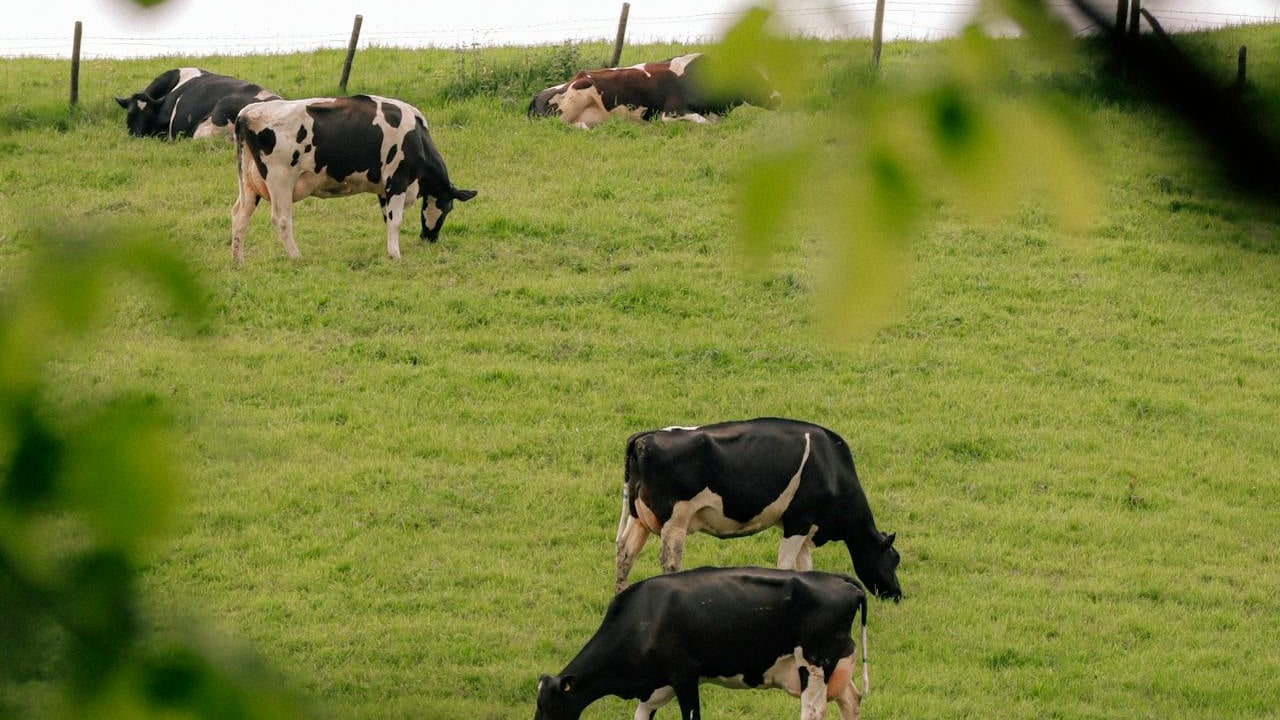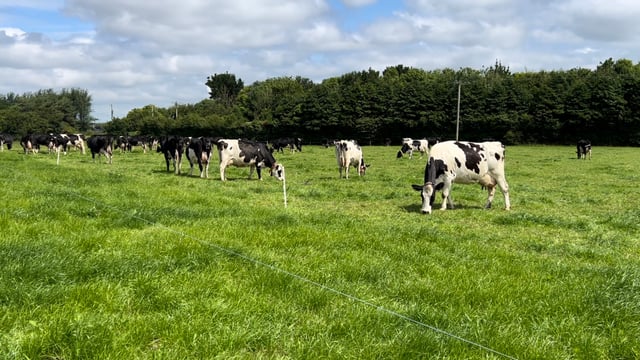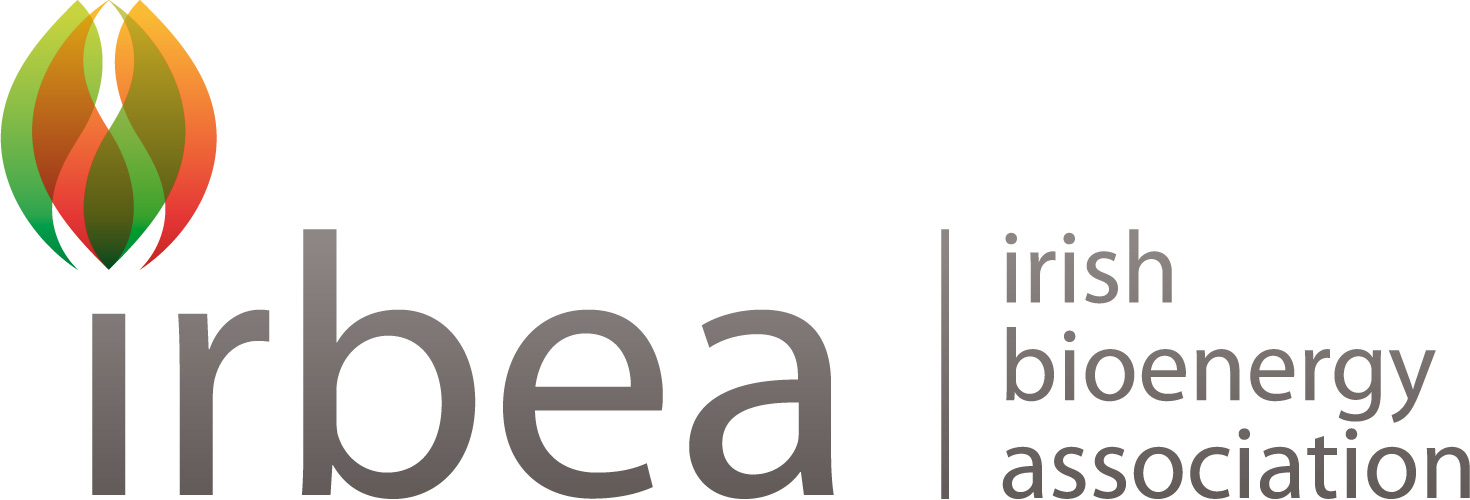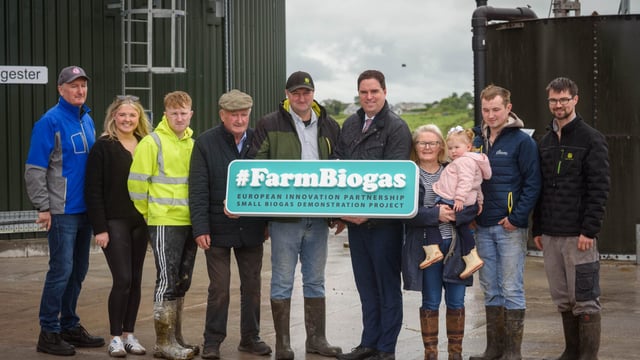'Derogation underpins our grass-fed model of agriculture' - Mulvihill
At the launch of the River Blackwater Catchment Programme in Co. Cork, director of Dairy Industry Ireland (DII), Conor Mulvihill spoke to Agriland about the derogation, and how important these farming for water programmes are for the industry.
Mulvhill believes that "the derogation underpins our grass-fed model of agriculture and not just dairy but it underpins our beef, it underpins our organics, and focuses our tillage targets".
The DII director said that improving water quality is "how we get ourselves out of this" and that the River Blackwater Catchment Programme is a "manifestation" of that.
The Early Insights Nitrogen Indicator from the Environmental Protection Agency (EPA) has been developed to provide information on nitrogen levels, and is based on monitoring data at 20 major and representative rivers.
This shows that nitrogen levels have improved in 2024. However, nitrogen remains too high in the south-eastern half of the country, according to the EPA.
Mulvihill said these reports from the EPA, "who are like the referee here", will be sent to the European Commission, adding that "they're going well and we hope they further improve".
The three-year programme will bring together a number of government-funded organisations and industry leaders to work on a series of “projects, actions and activities aimed at engaging farmers and processors” in implementing best farm practices to improve water quality.
The River Blackwater is 170km in length and has a surrounding catchment area of 3,310 km2 .
The catchment is also home to more than 100,000 people, as well as over 1,600 milk suppliers to Dairygold, North Cork Creameries, Tirlán, and Kerry Co-op.
It also boasts a number of beef, pig and tillage family farms and enterprises.
According to Dairygold, the new partnership programme primarily recognises “the importance of the River Blackwater to the farming sector and everybody in the region and seeks to enhance the water quality for everyone’s benefit”.
The programme will see the dairy processor partner with Teagasc and the Local Authority Water Programme (LAWPRO).
The likes of this programme are crucial in the eyes of Mulvihill to the success of the project, as he said "it's absolutely vital that we get every single farmer, co-op processor, meat processor, everybody to get in behind this Farming for Water movement."
"This Blackwater programme is being replicated in every single co-op across the country, wherever you are , from Donegal to Bunclody, there's a project that everyone can get involved in", Mulvihill added.
The DII director urged farmers to avail of the €60 million funding in European Innovation Partnership (EIP) measures to "save our grass-fed agriculture".
His advice was to get in touch with your Agricultural Sustainability Support and Advisory Programme (ASSAP) advisor to see if you are eligible for the Farming for Water EIP.
This will come with an assessment of the farm, someone to walk through your farm to see where any problems lie, after which the advisor will draw up a rainwater management plan and see what needs to be done
With a lot of measures being 100% funded, Mulvihill described the initiative as "an absolute no-brainer - it's a win-win-win".
Mulvihill also advised that farmers should also be availing of the AgNav, as every farm is different.
"One size doesn't fit all and every farm needs that help and advice, tailoring solutions onto their farm, " he said.
He added that AgNav offers that sense of direction, as farmers can firstly identify whether there is a nitrates (N) or phosphates (P) issue on the farm, or a bit of both, which depends on soil type.
Identifying what nutrient is leaching in your soils allows farmers to mitigate the P pathways or the nitrogen (N) leaching on their farm, allowing their N and P balances to be rectified over time by following good measures.
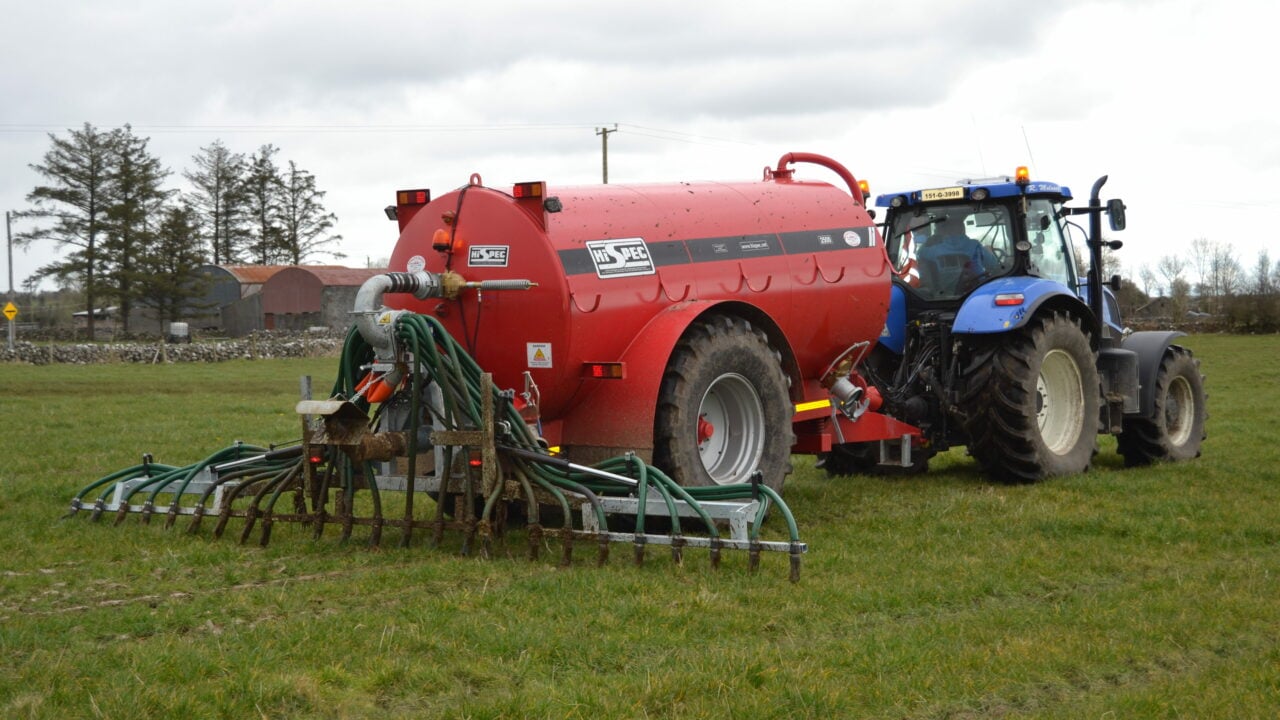
Measures to correct your N and P balance include simply using low emission slurry spreading, improving soil fertility, extending the grazing season, using protected urea and simpler fetiliser combinations, improving the Economic Breeding Index, delaying slurry spreading dates, and reducing protein concentration.
All of these go towards getting a better grasp of your N and P balances and all improve profitability on your farm as well, asthe more milk solids that is sold off farm, the more balanced your nutrients in and out of the farm become.
Muylvihill said currrently, "there is a lot of wasted fertiliser and the nutrient balance will save farmers money as well as improving water quality".
"We need to put the best foot forward now and over the next six months to make the case for the retention of the Nitrates Derogation in December," he added.
He also claimed that we need certainty beyond that point to make it attractive for young people coming into the industry and to get "a long term solution for the Nitrates Derogation and to improve water quality, and they come hand-in-hand."
"Farmers and industry are up for that challenge", Mulvihill stated.

